Tribal Gaming Casinos Beginnings
Added on September 30, 2025, in Gambling Articles by Gambling Gurus
Tribal Gaming Casinos – Are They “The Red Mans Revenge” ?
Casinos in Tribal Gaming“Etched in the history of our great nation is a long and lamentable chapter about the exploitation of Native Americans…. Every kind of charlatan and every type of crook has deceived and exploited America’s native sons and daughters. While these accounts of unscrupulous men are sadly familiar, the tale we hear today is not. What sets this tale apart, what makes it truly extraordinary, is the extent and degree of the apparent exploitation and deceit.” — Statement of Senator John McCain, Senate Committee on Indian Affairs, Oversight Hearing on Lobbying Practices Involving Indian Tribes, 9/29/04
The good Senator McCain was not referring to the 1800’s or even 1900’s but current affairs of the time regarding Tribal Gaming Casinos and the mistreatment of Native American owners.
The illustrious Beltway insider Jack Abramoff had promised assistance to the Tigua Tribe, whose casino had closed under Governor GW Bush. He told them he would get their tribal gaming casino re-opened. Little did they know that Abramoff had been a part of the very lobby that got them shut down, costing the tribe uncountable revenue and 800 jobs. Abramoff didn’t seem to have anything personally against the Tigua Tribe or Tribal Gaming Casinos in general, (he used racist remarks in referring to all Native Americans), he was just in it for the money.
He screwed at least five other tribes out of their money promising them to build “in-the-trenches” support for their causes and get them some action on Capitol Hill. We assure you this isn’t opinion – it’s fact. Feel free to look at some emails released by the Senate Oversight Committee while they were investigating Michael Scanlon and Abramoff and make up your own mind.
Opinions vary widely on Tribal Gaming Casinos. On one hand most gamblers know that most if not all tribal gaming casinos are not regulated the way the Nevada Gaming Commission regulates the casinos under their jurisdiction.
Some people, perhaps offensively, call the house edge at Tribal Gaming Casinos, “The Red Mans Revenge” and some people have complained of rough or rude treatment when they have won great sums of money but we don’t find those stories documented so we won’t lend them credence other than to report that it has been alleged.
On the other hand anyone who has spent some time at the better Tribal Gaming Casinos knows that you can get luxurious accommodations for very reasonable prices and that the gaming is as fast paced and exciting as any Las Vegas Casino. My treatment at the Tribal Gaming Casinos in the North West and along the coast has been exemplary and I have always been treated as an honored guest; win or lose. I admit they are rarely my destination, but rather planned stopovers on non gambling trips but I never miss a chance to stay and play.
‘Gambling’ has been a social and ceremonial cornerstone of Native American life for centuries. Today, Tribal Gaming Casinos are the financial cornerstone of almost half the recognized tribal governments in North America.
The moment of truth that made Indian Gaming and more specifically Tribal Gaming Casinos legally possible, was a moment in the early 1970’s in Northern Minnesota. A couple was living on Indian lands in their mobile home and received a property tax bill from the county. They weren’t going to pay it as the government had no business taxing Indian lands.
They lost court battle after court battle but fought on for the principle of it and eventually the case went to the United States Supreme Court for review. The court ruled that not only do states have no business trying to tax Indian lands, they also have no business trying to regulate what Indians do on their own reservations.
Then the Seminole Tribe of Florida opened a high stakes bingo game in 1979. Of course the state moved quickly to try to shut them down but the tribe prevailed in court. (Seminole Tribe vs Butterworth) Despite those rulings the future of tribal gaming and tribal gaming casinos was in no way a foregone conclusion.
In 1987 in California vs. Cabazon Band of Mission Indians the Supreme Court ruled that sovereign Indian tribal governments may operate gaming facilities without interference from state regulation as long as the gaming operations and Tribal Gaming Casinos were not directly prohibited in the state. Only Hawaii and Utah have specific laws that prohibit gambling in all forms.
In 1988 Congress formerly recognized, while limiting, tribe’s rights to conduct gaming in their own jurisdictions when Congress passed the Indian Gaming Regulatory Act and established the National Indian Gaming Commission or the (NIGC).
The National Indian Gaming Commission’s stated mission is to “…regulate gaming activities on Indian lands for the purpose of shielding Indian tribes from organized crime and other corrupting influences; to ensure that Indian tribes are the primary beneficiaries of gaming revenue; and to assure that gaming is conducted fairly and honestly by both operators and players.”
Finally, after countless decades of abject poverty and staggering unemployment rates the tribes were once again able to fend for themselves in the American economic system. Certain criteria have to be met by the Federally-Recognized Tribes and agreed to in a tribal-state compact that must be negotiated in order to offer ‘regular casino games’ like roulette, craps, blackjack and random slots, etc., at Tribal Gaming Casinos. There are also limitations on how the proceeds from those games can be spent; the most important being for the general welfare of the tribe and its members. They may also fund economic development, fund the operation of local governmental agencies, and donate to charitable organizations.
Some of the most well known casinos are the Morongo Casino Resort and Spa in Cabazon, California and the ‘The Mohegan Sun and Foxwoods Casino’ in Connecticut. It’s interesting to note that it is reported that Foxwoods makes more money than any casino in Atlantic City or Las Vegas and that in their first ten years of operation they gave the state over $1.7 billion dollars in fees.
And then there is Harrah’s Cherokee Casino & Hotel in Cherokee, North Carolina which opened in 1997. In January 2007, only 10 years later, the Eastern Band of the Cherokee Tribal Council approved a $633 million expansion for Harrah’s Cherokee that was completed in 2012.
According to (Wilkinson, Charles. Blood Struggle: The Rise of Modern Indian Nations.) as a result of then President Reagan’s signature on the Indian Gaming Regulatory Act, Indian gaming revenue skyrocketed from $100 million in 1988 to $16.7 billion in 2006. More recent numbers are not as easy to come by but it isn’t hard to extrapolate from there that Indian Gaming and their Tribal Gaming Casinos are a growing part of the American landscape and it’s here to stay.









